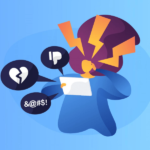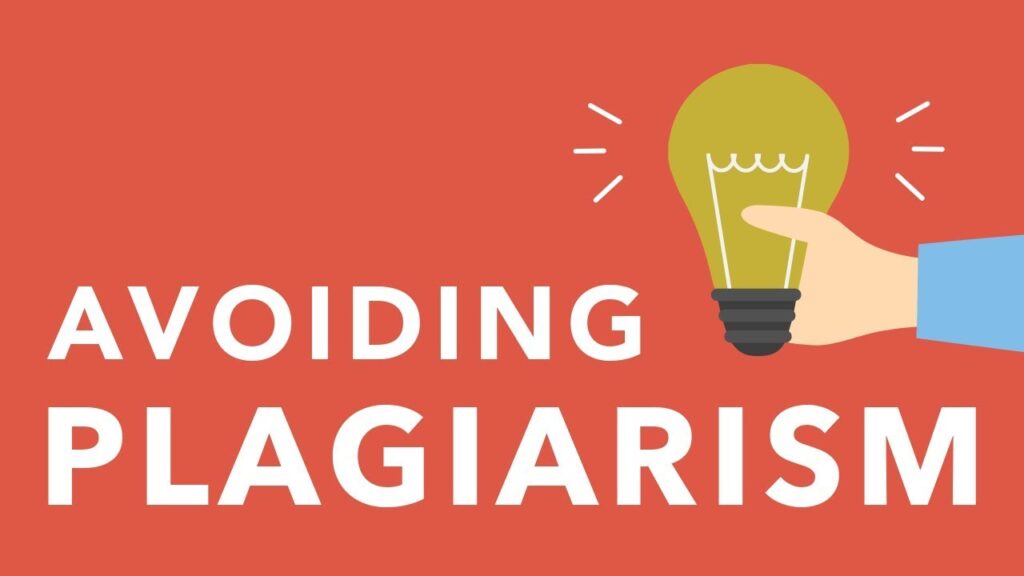Written by Russ Gadzhiev, PhD
“Plagiarism is one of the great academic sins. It has the power to destroy a scholar or writer and turn a lifetime’s work to dust.” – Miranda Devine
“If you plagiarize others’ techniques, you steal their emotions and tell your spectators a lie with your work. Works as such equal zero” – Wu Guan-Zhong.
“To steal ideas from one person is plagiarism; to steal from many is research.” – Steven Wright
Plagiarism has been one of the most pressing issues in the world of education. Before we proceed to our discussion on how to combat plagiarism, let us define it. Plagiarism is when you take someone else’s work and present it as your own.
There are several types of plagiarism. One of the most common ones is called “direct plagiarism”. “Direct plagiarism” is when someone takes a whole section or paragraph of someone’s work, word for word – without referring to the original author or using quotation marks. In many universities all over the world, those who engage in plagiarism and are caught face severe consequences. Sometimes such students are even expelled.
Yes, the issue of plagiarism is usually taken very seriously at many schools and universities as it undermines the very idea of progress. If the issue of plagiarism were ignored, scientists and researchers would be extremely discouraged to work and contribute to the development of their scientific fields.
There is another type of plagiarism – self-plagiarism. You may wonder – how is it possible to plagiarize your own work? Well, it is very possible. Let’s say you wrote a paper about a subject in school. Then, at the university, you were given a similar assignment and you decided to use your previously written paper in school to do your university assignment. That means that you are engaging in self-plagiarism.
In this short article, we are going to talk about plagiarism, and we are going to talk about the ways of dealing with plagiarism. Rather than trying to theorize about the issue, we will give you practical tips on how to make sure your students do not engage in plagiarism.
It goes without saying that the rise of technology has contributed to the rise in plagiarism. Indeed, with so many on-line sources freely available there is nothing easier than copying someone’s work and pasting it into your own research paper. However, far from being an honest practice, plagiarism can severely damage students’ learning.
Teach What is Plagiarism
Before punishing your students for using someone’s work without proper acknowledgments or citations, you need to make sure that they know what plagiarism is. So first, have a group discussion with them about plagiarism. Do not just lecture them about plagiarism. Try to initiate a discussion during which students will arrive at their own correct conclusions and discoveries. Hear every student’s opinion and make sure all of them realize that it is wrong.
Consult with Others
Talk to your colleagues about their strategies and experience in dealing with plagiarised work. It would be safe to assume that every teacher throughout their career had to deal with a student who had plagiarised someone’s work. Listen to their stories and analyze their experience. Think about how you can apply their experience to your class.
Discuss with Students Research Skills
Think about how to engage with your students in conversations about what it means to be a good researcher. Also explain to your students that they can use other people’s work, but they need to acknowledge that they have done so. Teach them how to create footnotes and how to use quotation marks. Most importantly, teach them how to paraphrase – this knowledge will stand them in good stead when they become university students.
Teach Your Students About Various Types of Plagiarism
While most of them may have a good understanding of what “word-for-word” plagiarism is, they may not be aware of what self-plagiarism is. They may also not be aware of other types of plagiarism. The more they know about the issue of plagiarism, the better.
Share Websites and Other Sources That Can Help Avoid Plagiarism
It is true that many students engage in plagiarism because nobody has ever properly taught them how to write papers and how to use other people’s work without plagiarising. There are many good websites that may help students develop their writing skills. Undoubtedly, writing a research paper is not an easy task, but if your students know how to write them, they will enjoy doing so and they will be able to use these invaluable skills in their work in the future.
Teach Basic Time Management Skills
Again, many students plagiarise because they are trying to write their papers one day before the submission date. Explain to them that it is crucial that they approach writing their papers in a responsible way. Make sure they realize that a good paper cannot be written in one night and may take at least several days. You can learn more about procrastination and teaching time management skills to your students if you read other articles on our Shiminly blog.
Teach Proper Citation
Explain to your students that their research papers will be better if they use other people’s work and properly cite their papers. Interestingly, many students believe that if their paper is full of references and citations then it means that their paper is weak. This is not the case of course. The more they engage with other people’s work, the more they demonstrate that they have done extensive research. In fact, the best research papers are usually replete with citations and references.
Use Plagiarism Detection Websites
You can also ask your students to submit their papers through special websites, which detect plagiarism. This tactic can help you save time, and it will also make your students think twice about whether it is worth it to plagiarize or not. Knowing that their work will be scrutinized by a plagiarism checker will discourage them from dishonest practices.
Avoid Giving Topics That Are Too General
If the topic of a paper is too general, it is going to be very easy for your students to find papers with a similar topic and therefore plagiarize them. In fact, their temptation to do so will be very high. However, giving your students a topic on a specific, “narrower” topic, will make it difficult for them to find a paper with an identical title. Therefore, the likelihood of their plagiarizing will be lower.
Be Prepared That Some students will Still Plagiarize
There are some things that you just can’t control as a teacher. But if you see that some students persistently continue to plagiarize despite the tactics that you have tried, perhaps you can try talking to their parents. The issue of plagiarism must be addressed because if students do not break their habit to plagiarize during their school years, they are likely to continue doing so at the university. And the consequences of plagiarism at university can be very serious. So, it is best to nip the problem in the bud.
It goes without saying that battling plagiarism is one of the most difficult and, perhaps, tedious tasks that a teacher may face during their teaching careers. The good news, fighting plagiarism in your classroom does not mean that you must police your students and punish them. Not at all. First, you need to educate your students about the dangers of plagiarism. Then you need to teach them how to paraphrase and make sure that they apply the knowledge of paraphrasing to any future assignments that they will be doing in the future. Along with providing your students with tips on how to write papers and use citations appropriately, you need to teach them good time management skills. As we have pointed out, very often students engage in plagiarism because they are simply pressed for time – they have postponed their paper until the last day.
Instill a sense of responsibility in your students. Make them realize that their learning is in their own hands. Make them realize that by copying other people’s work and presenting it as their own, they are not only deceiving you, but they are also robbing themselves of a bright future. While the advent of the Internet has made plagiarizing easier, it has also made plagiarism detection an easy task to do.
Russ Gadzhiev obtained his PhD in history and politics from University of Melbourne. He also holds a master’s degree in International Relations from Moscow State University of International Relations, a top-ranking diplomatic school. Russ is a strong education professional with a history of working in the higher education sector of Australia and effectively communicates with learners from diverse cultural backgrounds. He is enthusiastic about teaching and mentoring, writing, curriculum development, research, information management and public speaking. He is fluent in Russian, English, Spanish and Portuguese.








































